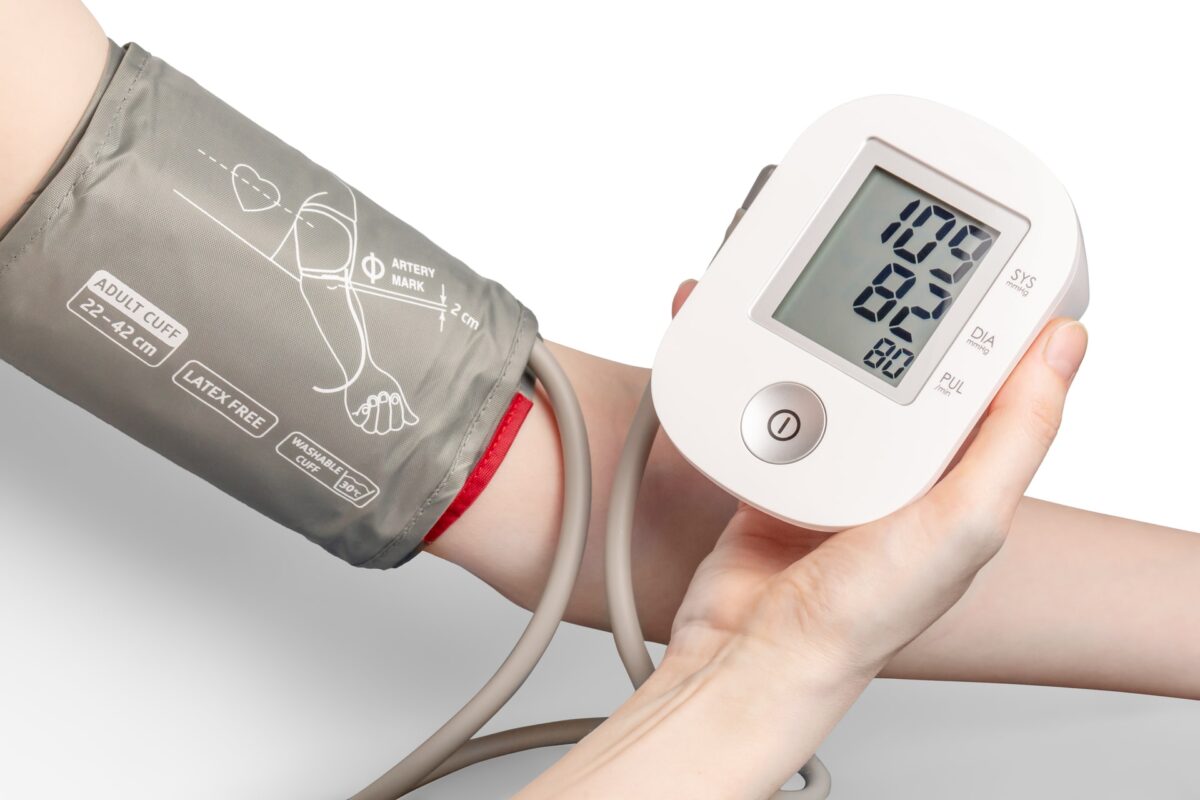Hypertension and Heart Health

Written by Deepak Kumar Nayak and Aryan Pratyush Nayak and Guided by Dr. Anand Agarwal.
An Overview
Hypertension, also known as High Blood Pressure, is a severe medical condition in which the force of blood pushing against your artery walls is consistently very high.
Blood pressure is usually expressed in a fraction. The first (systolic) number represents the pressure in blood vessels while the heart beats. The second (diastolic) number represents the pressure in blood vessels when the heart rests between beats.
The usual range of systolic/ diastolic pressure is 120/80 mmHg or less. But if the blood pressure exceeds 140+/90+ mm of Hg, then the condition is called High blood pressure.
About 1.14 billion individuals worldwide have hypertension, and it is a significant cause of premature death.
Generally, there are two types of High blood pressure:
- Primary Hypertension: If the cause of blood pressure is not identifiable, then the condition is called primary or essential hypertension.
- Secondary Hypertension: If the reason for blood pressure is due to some pre-existing health condition (kidney disease, thyroid imbalance, drug intake, etc.), this condition is called secondary hypertension. In this case, hypertension tends to appear suddenly.
Hypertension and Heart Complications
Hypertension puts your heart at high risk. It damages the heart by hardening the artery walls and decreasing the flow of oxygenated blood to the heart. This can create complications like chest pain (Angina). High blood pressure can block the supply of oxygenated blood to the heart, thereby causing heart attacks. When the arteries get harder, the heart is restricted from pumping enough oxygen-rich blood to vital organs, which may cause heart failure.
In addition to the heart, hypertension is a significant threat to the brain and kidneys.
Symptoms
Many individuals neglect their health and are hardly aware of Hypertension. However, there are some symptoms that one can notice. They include:
- Early morning headaches
- Anxiety
- Confusion
- Nausea
- Vomiting
- Blurry visions
- Buzzing in ears
- Pain in the neck region and calf muscles
- Irregular heart rhythms
In severe or untreated cases, it can cause Angina (chest pain), heart attacks, heart failure, and strokes, leading to sudden death. So it’s highly recommended to take a quick and painless test of blood pressure in case you possess any of the symptoms mentioned above.
Risk factors:
- Family history or Age: If any of your family members have high blood pressure, there are maximum chances of you acquiring it. Other than that, the risk of high blood pressure also increases with growing age (mostly between 60-70).
- Being obese or physically inactive: In this condition, your heart rate increases. The heart works harder to pump and supply oxygenated blood to your body parts. This reduces the efficiency of your heart and triggers high blood pressure.
- Consumption of Tobacco or Alcohol: The chemicals present in tobacco and alcohol damages your artery walls and can instantly increase your blood pressure. Gradually they make your artery walls harder and restrict the nutrients and oxygen supply to the heart.
- Intake of Sodium and Potassium in Diet: Too much Sodium or too little potassium is not suitable for your body. Consuming more Sodium increases your blood pressure. Potassium helps in balancing Sodium levels. Therefore less Sodium and required potassium in diets are critically good for your health.
- Stress: Stress is the most common factor for high blood pressure among all age groups. Due to stress, many individuals adopt smoking cigarettes, drinking alcohol, and affect themselves.
Preventive measures
- Reduce salt intake:Consumption of less than 5 grams of salt per day helps in reducing blood pressure, the risk of cardiovascular disease and coronary heart attack.
- Eat more fresh fruits and vegetables: Fresh fruits and vegetables are ideal for high blood pressure patients. They are enriched with vitamins and minerals which control blood pressure.
- Eliminate the intake of trans fats in diet: Consuming trans fats can form build-ups in your arteries and blood vessels which can eventually boost hypertension and other complications. So it’s highly recommended to avoid trans fats.
- Stay physically active on a daily basis:Regular exercise and workouts can regulate your body metabolism, which will keep you disease-free.
- Avoid consumption of tobacco or alcohol: Alcohol and Tobacco can narrow the walls of the blood vessels, thereby increasing the risk of blood pressure and cardiovascular disease.
- Practice Meditation, Yoga, and Om chanting:This can act as monotherapy in controlling hypertension. These processes are clinically significant in controlling systolic and diastolic blood pressure.
- Regularly checking blood pressure:Frequently monitor your blood pressure at least 3-4 times a week and keep a record to notice fluctuations.
- Managing other health conditions: Keep your existing health conditions under control and stay in touch with your doctor. Have immediate consultation in case of complications.
Conclusion
Hypertension is a silent killer. It is a very controllable disease, with drastic consequences if left uncontrolled.
Certain lifestyle changes, eating habits, and exercise can be beneficial. But in some cases, if these changes do not control your blood pressure, you may need to take certain medications. Keep a check on your blood pressure, and in case of emergencies, or any kind of discomfort, always consult your doctor. A positive approach and a healthy lifestyle can help you live longer.



